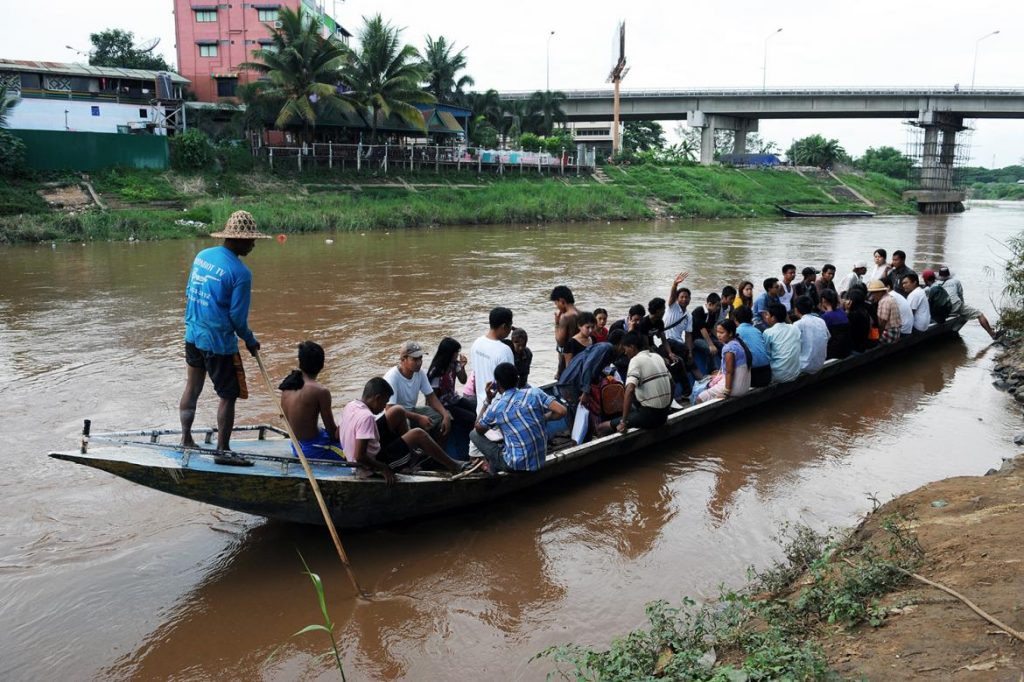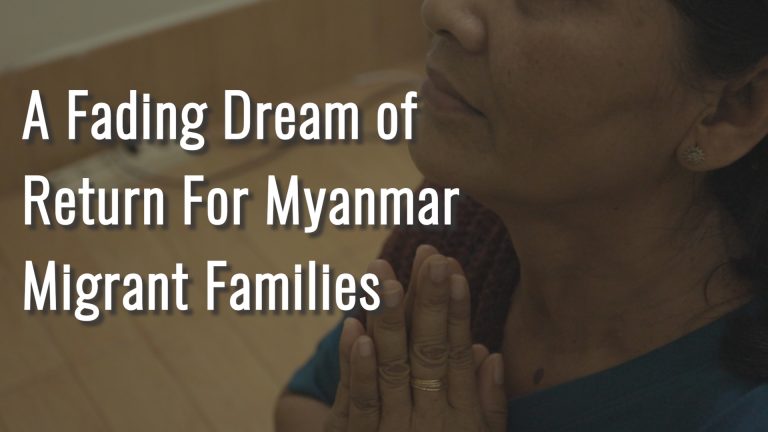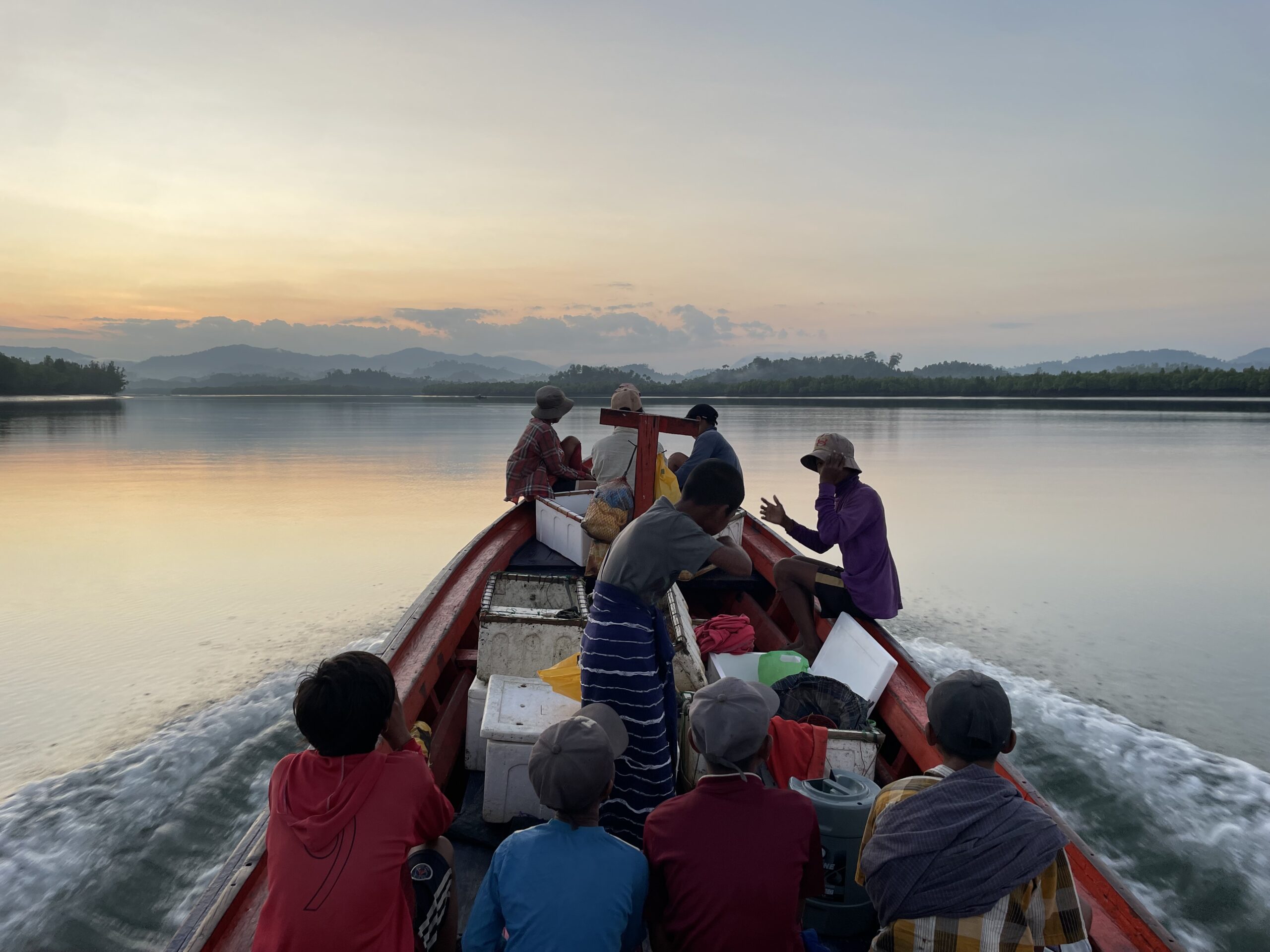By FRONTIER
YANGON — Myanmar Muslim migrants in Thailand could face prosecution when a new law on undocumented workers is introduced this week because Myanmar has denied them the documentation they require to legalise their status, a rights group has warned.
By June 30, all migrant workers in Thailand must have their nationality verified to legally work in the country, under a decree that authorities say is designed to fight human trafficking.
Those unable to complete the process will be considered illegal migrants and, if caught, will face fines of up to 50,000 baht (MMK2.1 million) as well as deportation and a two-year ban on applying for a Thai work permit.
Yet four communities of Myanmar Muslim migrants surveyed by the Burma Human Rights Network in Mae Sot between March and May 2018 recounted systematic discrimination from Myanmar officials involved in the registration process, according to a report launched yesterday at the Foreign Correspondents’ Club of Thailand.
Support more independent journalism like this. Sign up to be a Frontier member.
“Statelessness inflicted on the community in Myanmar has now become a problem in Thailand, making Burmese Muslim migrants more vulnerable and undermining Thai government policy to register all migrant workers,” BHRN said.
Thailand requires those without an ID or household registration documents to obtain a Certificate of Identity from Myanmar authorities, which can be used to apply for a Thai work permit.
Muslim migrants said the Myanmar authorities asked them to submit more documents than other migrants, including a valid ID card, household registration list, and letters from police and authorities in their place of origin. In some instances, even this was reportedly insufficient.
U Myo Aung, permanent secretary for the Ministry of Labour, Immigration and Population, denied the allegations. He told Frontier that any Myanmar citizen can apply for a Certificate of Identity, regardless of their religion.
“Even if they have no National Registration Card or household registration documents, they can apply for a CI by telling the labour office where they came from in Myanmar – whether or not they are Muslim,” he said.
BHRN has previously reported on what it calls the “long-term systematic refusal to issue national ID cards to Muslims”, as well as the refusal of immigration authorities to register the ethnicity of a Muslim person as Bamar. Instead, they often require them to add another designation, usually one of a Muslim-majority country, such as Bengali or Pakistani.
This discrimination is not just a problem among Muslim migrants, but is widespread within Myanmar, as previously reported by Frontier.
Prior to 1988, Myanmar’s Muslims were relatively free to describe their ethnic identity on their NRCs. In 1989, the State Law and Order Restoration Council began replacing NRCs with the pink Citizenship Scrutiny Cards now in use. At the time, immigration officers wrote ‘Bengali’ on the cards of Muslims, the deputy head of one township immigration office previously told Frontier.
The vast majority of Myanmar Muslims surveyed by BHRN this year reportedly said they wanted to be described on their IDs as “Myanmar Muslim” without reference to any other ethnicity or heritage, as they see themselves as culturally Myanmar.
Yet despite intensified threats of prosecution in Thailand, almost all of those surveyed by BHRN reportedly said they would rather stay than return to Myanmar. Three-quarters said they left Myanmar due to dire economic conditions. A smaller number said they left because of religious persecution, discrimination or armed conflict.
BHRN said yesterday it is concerned that Myanmar is seeking to reduce the citizenship status of Muslims throughout the country.
“This is in direct contravention of the Universal Declaration of Human Rights and Burma’s treaty obligations under the United Nations Convention of the Rights of the Child, making this a blatant violation of international law,” it said.
“Without the adoption of a citizenship scheme based on human rights norms and a new, democratic, federal constitution that removes the military from any political role in the country, Burma’s most marginalized will continue to struggle to live with dignity within and outside the country’s borders.”







